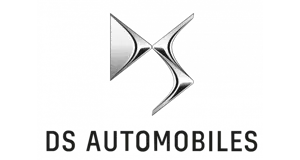Real MPG
Want to know what Real MPG to expect from your car? You've come to the right place. Real MPG is the original and biggest online tool for finding out the Real MPG for every make, model and engine out there.
These figures don't come from laboratory tests, they come from car drivers and owners. This real world data means Real MPG gives you genuine MPG figures. So if you're an owner or a prospective buyer, you can find out what Real MPG your car should be getting.
Budget Autumn 2024: What it means for motorists
With the Autumn 2024 Budget just around the corner, attention is once again focussed on what it means for car owners and drivers. There are already rumours of an announcement on road pricing which would replace the current VED car tax system.
Fuel duty is another talking point with experts predicting an increase in the rate of fuel duty. It's also likely that the Labour government will reinstate the 2030 ban on the sale of new petrol and diesel cars, although a decision on which hybrid cars will be allowed is yet to be made.
What is Real MPG?
Real MPG was launched in 2011, since when we've had more than 250,000 submissions by owners and drivers. No other online MPG resource comes close to this.
It was developed by the in house team at HonestJohn.co.uk following years of complaints from our readers that their cars were getting nowhere near the claimed economy figures published by manufacturers.
Unlike laboratory tests, Real MPG gives genuine real world data from real drivers and allows owners and buyers to see how much on-the-road fuel a vehicle really uses.
Also on Honest John...
Check your car tax
Want to find out how much your car tax will be come renewal time? Check with our handy tool.
Insurance Group finder
With the cost of car insurance rising at record levels, finding ways to save money on car insurance is more crucial than ever. So if you want to find out what insurance group a particular make and model is, we can help.
Get a used car valuation
Buying a used car or thinking of selling yours? Get a free valuation with our Value My Car Tool. Simpy enter the registration below to get started.
MPG FAQs
How does Real MPG work?
Unlike other online MPG calculators or comparison toops, our data doesn't come from a laboratory test. Instead we use the best source of data we know - drivers and car owners.
We collate MPG figures for every make, model and engine, both used and currently on sale. This gives us an average MPG figure that we can then compare with the official WLTP (or NEDC depending on age) figure to show as a % how close that car comes to its claimed MPG figure.
Spurious and repeatedly entered figures are automatically flagged and ignored by the system, so we know the data is genuine and not skewed.
What is MPG?
MPG or miles per gallon - is simply a way of measuring a car's fuel economy or fuel consumption, to be more accurate. Essentially is tells you how many miles your car will cover on a gallon of fuel. So if your car does 35mpg, it can cover 35 miles on a gallon of fuel.
Of course fuel is sold in litres in the UK which makes this a bit more confusing when working out the cost. But a gallon is around 4.5 litres (in fact 4.546 litres to be precises).
So for example, if fuel costs £1.50 a litre, a gallon costs £6.80.
You may see different MPG figures shown by manufacturers online and in brochures. These used to be called Urban, Extra-Urban and Combined - the latter being the average of the first two.
However, thanks to the WLTP test, you will see a wider spread of MPG figures listed under Low, Medium, High and Extra High.
These are designed to replicate city, suburban, main road and motorway driving with a vehicle tested at 35mph, 47mph, 60mph and 81mph respectively. Again, the Combined MPG is an average of these - the idea being to give you an MPG figure which you should be able to get close to in mixed driving.
It's this Combined MPG figure that most manufacturers will quote and is also the figure we use when comparing our Real MPG data with the official figures.
How to measure your MPG
Every modern car has a trip computer that will show you an MPG figure. There are usually several settings so you can see a journey or short term MPG figure as well as a long term MPG.
While these are not 100% accurate they are a good way of keeping check of your MPG and we know most drives use these figures for Real MPG.
However, you can easily calculate your MPG manually.
You simply need to fill your car with fuel as normal until the pump clicks off and before you drive away, make a note of the mileage or reset the trip computer
When your car gets low on fuel (we usually recommend about a quarter of a tank rather than on fumes...), fill it again until the pump clicks and record the litres of fuel you've just put in.
Now it's time to get your calculator out. Convert this figure gallons by dividing by 4.546, then divide the number of miles you've covered by the number of gallons. This will give you an accurate MPG figure.
What is WLTP?
If you're searching for car MPG figures you'll probably see the letters WLTP crop up. It stands for Worldwide Harmonised Light Vehicles Test Procedure and is essentially how all new cars are tested in order to determine their official MPG figures, the ones you'll see on manufacturer websites and in brochures.
WLTP replaced the old NEDC test in September 2017 and is designed to be more reflective of real world driving conditions. We've certainly seen an improvement - the gap between WLTP figures and Real MPG figures has gotten smaller - but the fact is that WLTP is still a laboratory-based test.
While it creates a more accurate driving profile, it can't account for variations in weather, car occupancy and traffic congestion - all of which have a big effect on fuel economy.



























































